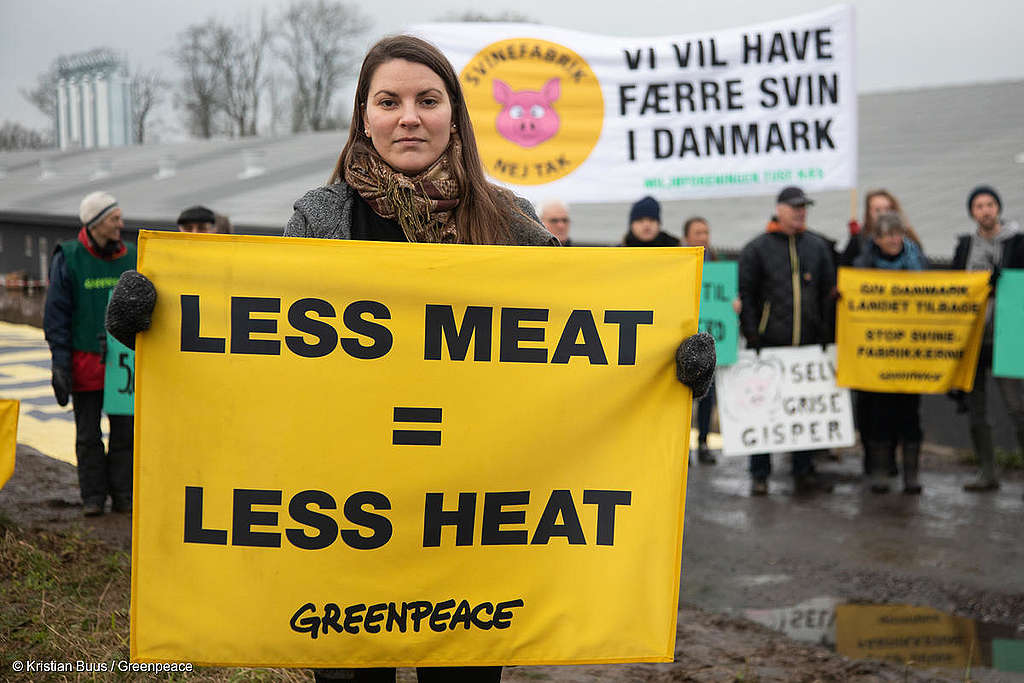EU Commission says meat harms climate and nature, but does nothing
Last-minute U-turn on meat advertising reveals internal fights
Brussels – The European Commission acknowledged the impact that overproduction and overconsumption of meat has on health, nature and the climate in the proposed ‘Farm to Fork’ food policy published today, but proposed no action to reduce it.
A leaked version of the plan, circulated on 19 May, showed that the Commission was ready to end EU-funded meat advertising, but is not included in the published version. The U-turn on these measures to reduce the consumption and production of meat indicates last-minute pressure from the livestock industry and their allies in the Commission.
Marco Contiero, Greenpeace EU agriculture policy director, said: “The European Commission has finally accepted the science and recognises that producing and consuming too much meat is hurting health, destroying nature and driving climate breakdown – but chooses to do nothing about it. The Commission seems to be too cowardly even to end the few million going to EU-funded meat advertising, let alone reconsider the billions that support overproduction of meat in the first place.”

The European Commission has spent about €23 million per year on meat advertising, and earmarked €5 million for advertising beef and veal in 2020. In comparison, the EU spends roughly one fifth of its total budget on livestock and feed production, an estimated €28-32 billion per year, through the common agricultural policy.
Europeans consume around twice as much meat as the global average, and almost three times as much dairy. The Lancet recommends that diets shift to no more than 300g of meat per person per week in order to protect human health and the environment, and to tackle the climate emergency. Greenpeace calculated that a climate-safe diet would mean a 71% reduction in European meat consumption by 2030, and a 81% reduction by 2050.
COVID-19 and future pandemics
While the European Commission’s biodiversity strategy, also published today, recognises the links between ecosystem destruction and disease outbreaks, the Farm to Fork strategy addresses the COVID-19 crisis primarily by suggesting ‘food security’ be maintained with high levels of production. Both strategies fail to link factory farming of animals – especially poultry and pigs where animals are kept in very high numbers and close contact, and transported across large distances – to increased risk of disease transmission.
Industrial animal farming has a well-recognised role in the emergence and spread of viral infections similar to Covid-19. An estimated 73% of all emerging infectious diseases originate in animals, and livestock species transmit an extraordinary number of viruses, like coronaviruses and influenza viruses, to humans. Animal farming is also the main driver of global forest destruction, and researchers estimate 31% of outbreaks of emerging diseases are linked to land use change.
Contacts:
Marco Contiero – Greenpeace EU agriculture policy director: +32 (0)47 777 7034, marco.contiero@greenpeace.org
Greenpeace EU press desk: +32 (0)2 274 1911, pressdesk.eu@greenpeace.org
For breaking news and comment on EU affairs: www.twitter.com/GreenpeaceEU



